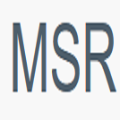The difficulties of underwater image degradation due to light scattering, absorption, and fog-like particles which lead to low resolution and poor visibility are discussed in this study report. We suggest a sophisticated hybrid strategy that combines Multi-Scale Retinex (MSR) defogging methods with Super-Resolution Convolutional Neural Networks (SRCNN) to address these problems. The Retinex algorithm mimics human visual perception to reduce uneven lighting and fogging, while the SRCNN component improves the spatial resolution of underwater photos.Through the combination of these methods, we are able to enhance the clarity, contrast, and colour restoration of underwater images, offering a reliable way to improve image quality in difficult underwater conditions. The research conducts extensive experiments on real-world underwater datasets to further illustrate the efficacy of the suggested approach. In terms of sharpness, visibility, and feature retention, quantitative evaluation which use metrics like the Structural Similarity Index Measure (SSIM) and Peak Signal-to-Noise Ratio (PSNR) demonstrates notable advances over conventional techniques.In real-time underwater applications like marine exploration, underwater robotics, and autonomous underwater vehicles, where clear and high-resolution imaging is crucial for operational success, the combination of deep learning and conventional image processing techniques offers a computationally efficient framework with superior results.
翻译:暂无翻译




